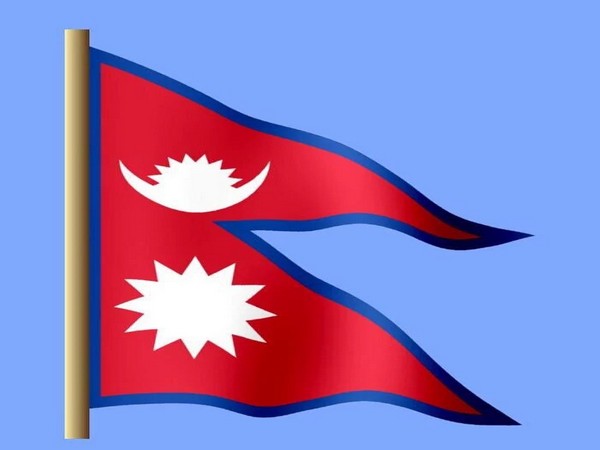Nepal may have hung parliament; political stability unlikely after general elections: analysts

- Country:
- Nepal
Ahead of Nepal's parliamentary and provincial assembly elections, political analysts here are predicting a hung parliament and a government that is unlikely to provide much-needed political stability in the Himalayan nation, sandwiched between India and China.
There are two major political alliances fighting it out for the November 20 general elections - the Nepali Congress-led democratic and leftist alliance and the CPN-UML-led leftist and pro-Hindu-pro-monarchy alliance.
The Nepali Congress-led ruling alliance includes CPN-Maoist Centre, CPN-Unified Socialist, and Madhes-based Loktantrik Samajwadi Party while the CPN-UML-led alliance includes pro-Hindu Rastriya Prajatantra Party and Madhes-based Janata Samajwadi Party.
Political observers closely watching the November 20 elections have predicted that the ruling alliance led by Prime Minister Sher Bahadur Deuba will become victorious in the parliamentary elections with the Nepali Congress emerging as the single largest party. K P Sharma Oli-led CPN-UML (the Communist Party of Nepal (Unified Marxist–Leninist) will emerge as the second largest party though the alliance he is leading is unlikely to get a major share in the new Parliament, they argue.
Several new political parties and many independent candidates are in the fray this time, posing a tough challenge to some of the heavyweights from established political parties that have failed to deliver.
''As things start moving now, one of the two pre-poll alliances is likely to emerge as the largest group after the election. However, the government to be formed by these groups is unlikely to provide the political stability that Nepal badly needs,'' senior journalist and political analyst Dhruba Adhikay said.
There is less enthusiasm in people regarding the election this time, said Rajesh Ahiraj, a political analyst closely watching the Madhes politics in Nepal.
''Intellectuals opine that the elections may produce a strong government but it will make the country weaker,'' he pointed out.
''The much-needed peace and political stability are far away even after the election.'' Madhes-based political parties such as Janata Samajwadi Party (JSP) led by Upendra Yadav and Loktantrik Samajwadi Party led by Mahantha Thakur both are unlikely to gain much in the upcoming election, he said.
''Among the two key Madhesi parties, comparatively speaking, the JSP will be in a better position after the election,'' he said. ''The majority of the voters are familiar with the character of their leaders and the weaknesses of political parties, through different social media sites. Thus, the election result will be very much unexpected this time,'' he pointed out.
No party is likely to get a majority in the election and it will take them a long time to form a new government and even after the formation of the government through negotiations, stability is far away, he added.
On the new government's foreign policy priorities, Adhikay said: ''So far as foreign policy is concerned, Nepal's political geography requires the incoming government to continue to have a balanced relationship with both of our immediate neighbours (India and China)''.
''Chances of major changes in existing policy priorities are minimal,'' he said. However, Daman Nath Dhungana, a former Speaker of the House of Representatives, feels that Nepal's relations with the neighbouring countries will largely depend upon how the new government will be formed and who will lead it. ''If the present ruling alliance continues, it will have certain priorities regarding the foreign policy and if the UML-led alliance emerges victorious it will have other priorities,'' he argued, adding ''some time back, the UML-led government was working towards establishing a Xi Jinping school in Nepal.'' ''The Nepali Congress and the Maoists are united just for power, though they have different ideologies. Neither the foreign policy nor the economic policy of the two parties match. Therefore, I fear that the new government will not be able to pursue a foreign policy that is suitable for Nepal.'' ''In the past, our relations with India were more important, and in a way, India had the monopoly to have leverage over Nepal affairs, but now the monopoly has ended with world power China becoming active in regional affairs,'' Dhungana said. ''The US, a superpower, has also come into the scenario and in this situation, we should have a balanced and effective foreign policy,'' he said.
''Though India and China both are equally important to us, India is much closer to Nepal due to cultural and religious proximity and economic integrity,'' he said.
Nepal needs to attract more foreign investment by using economic diplomacy to make the country prosperous, he added.
Voting for the twin elections in the Himalayan country will take place in a single phase.
More than 17.9 million people are eligible to vote in seven provinces across the country.
Out of a total of 275 members of the federal Parliament, 165 will be elected through direct voting while the remaining 110 will be elected through a proportionate method. Similarly, out of a total of 550 members of the Provincial Assembly, 330 will be elected directly and 220 will be elected through a proportionate method. The Nepali Congress became the second-largest party in the 2017 general elections with 63 seats and the Maoist Centre emerged as the third-largest party with 53 seats, according to The Kathmandu Post. The CPN-UML was the largest party in the previous election with 94 seats. The party split in 2021.
(This story has not been edited by Devdiscourse staff and is auto-generated from a syndicated feed.)










